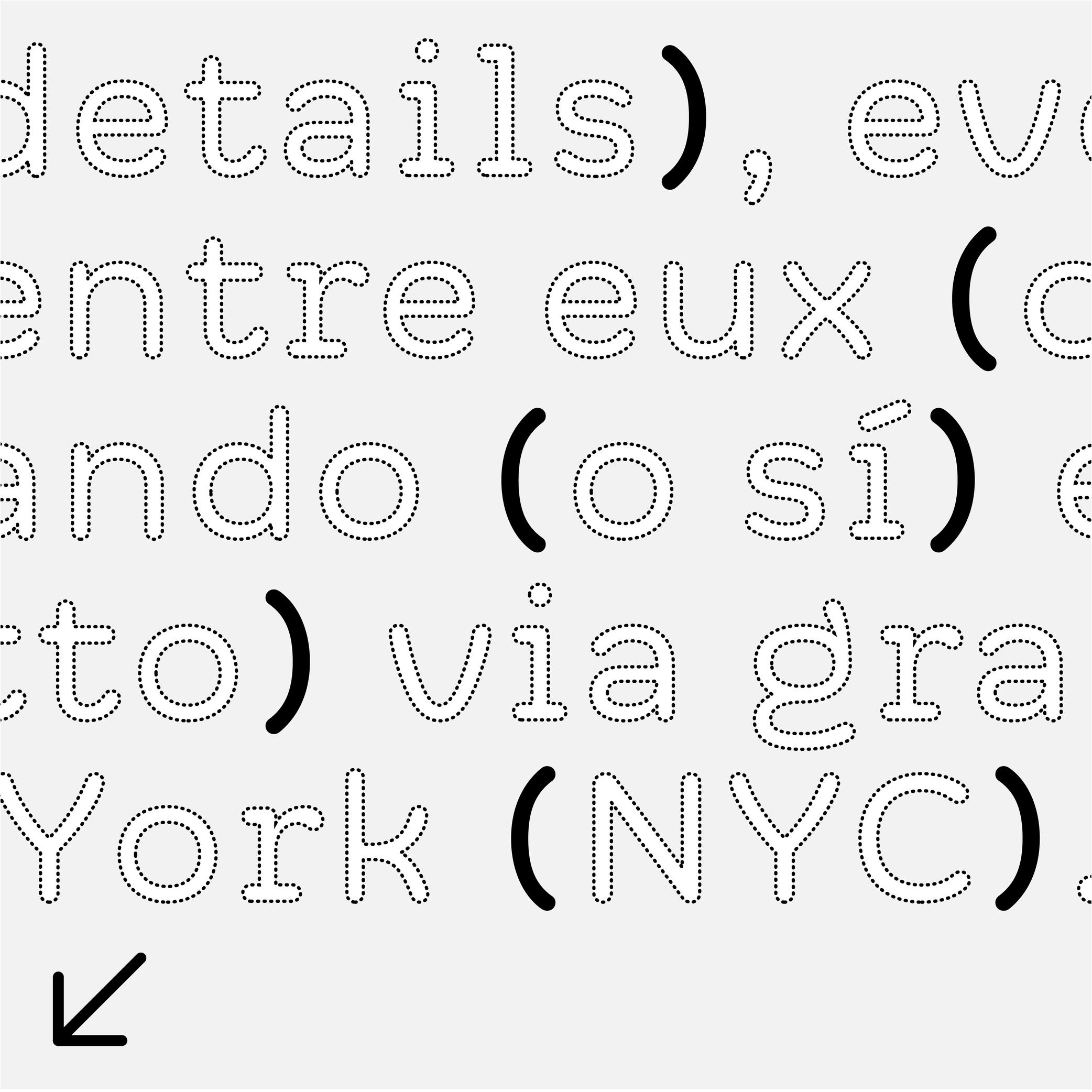Parentheses

Sponsor Word of Type and feature your typeface in this card with a linked caption. Contact us for more information.
FUNCTION
Parentheses indicate additional information in a sentence.
HISTORY
Early forms of parentheses added in text for the same purpose were shaped like chevron quotes (or guillemets). They later on evolved into the curved ones we know today.
These were introduced by French printer Nicholas Jenson in Venice, Italy, around the late 15th century.
DESIGN
They have the same height as braces and brackets (or curly brackets and squared brackets).
For typefaces with contrast, parentheses have matching contrast (thick middle part, thin tips) and terminal tips (slanted, vertical or horizontal). S
everal parentheses alternates are necessary in a typeface to better fit with capitalized text, text set in titlecase and lowercase, and text set in small caps (when they exist in a typeface).
The most common parentheses are curved (like these ones), but different shapes are used in other scripts.
TYPOGRAPHIC RULES
Parentheses are placed around a section of a sentence, with no space between them and the enclosed text.
Note:
one parenthesis
two parentheses
Notes
UNICODE
LEFT PARENTHESIS: U+0028
RIGHT PARENTHESIS: U+0029